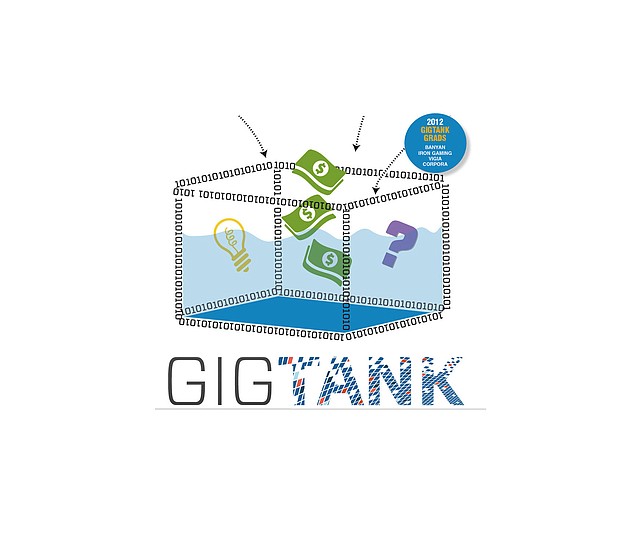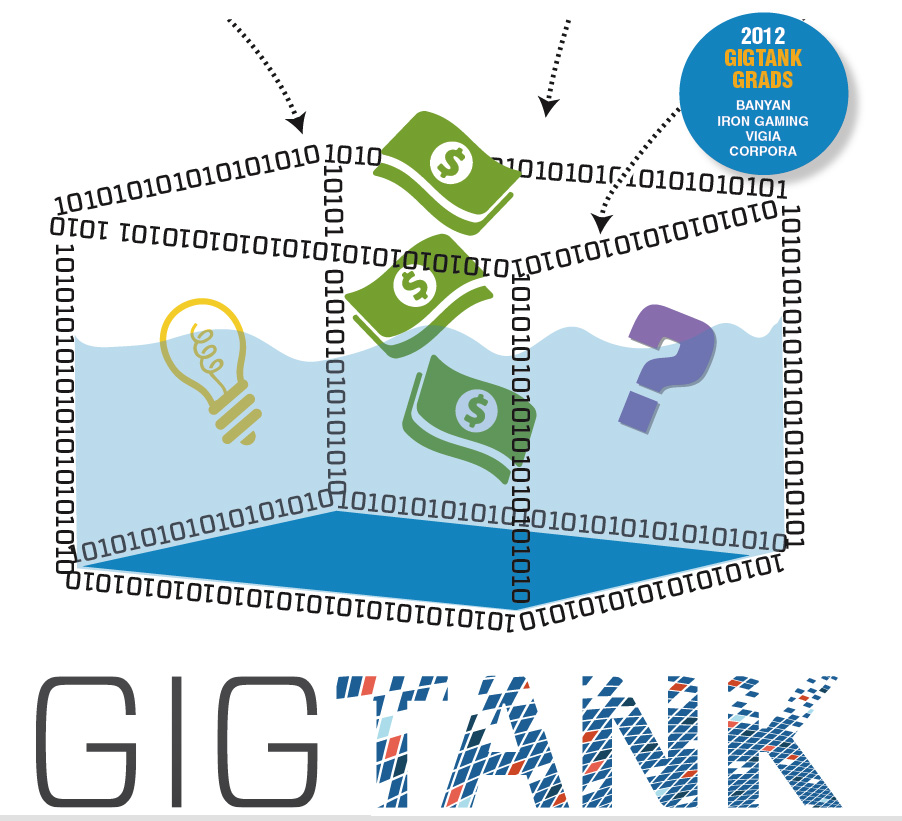GigTank 2013: more money, more entrepreneurs
Friday, January 1, 1904
New for 2013In 2012, eight teams competed in a contest for prizes. This year, organizers are eliminating prizes. Instead, eight to 12 teams of about 60 entrepreneurs will work collaboratively to earn grants and investments.In addition to Chattanooga's gigabit Internet infrastructure, all teams have access to prototypes and technologies from sponsors like ng Connect that will allow startups to ship their products or service quicker and gain customer feedback earlier than last year's teams.Top teams will join a "roadshow" to help gain exposure for them, the program and Chattanooga. This exposure will lead to more capital raised and greater potential customer acquisition.Applications2012: 72 student and 70 startup applications2013: Organizers anticipate more than 100 in the entrepreneur category and more than 100 applications in the specialist categoryPrize structure2012: Contest winners split $160,000 in prizes2013: Each team can earn up to $100,000 in investments depending on performance, plus Alcatel-Lucent will grant research and development awards to teams with promising projects.Sponsors• ng Connect is the "founding" partner this year.• Lamp Post Group• Alcatel-Lucent• Mozilla• US Ignite• More to come
Wake up in a college dormitory at 8 a.m., grab a quick breakfast and stumble into an office full of young, bold entrepreneurs. Work until dinner and return for a late-night coding session until about 1 a.m., then collapse into bed.
Repeat the cycle seven days a week for an entire summer in exchange for a shot at fame, glory and millions of dollars.
If the idea of a few months of hard work for potentially huge rewards sounds enticing, it might be worthwhile to submit an application for Chattanooga's 2013 GigTank.
Designed to propel business ideas from thought bubble to profitable enterprise, the program is one of a growing number of incubators, accelerators and lubricators popping up across the United States.
Chattanooga's GigTank will cram years of mistakes and masterstrokes into a single summer, accelerating a select group of entrepreneurs toward a potentially self-sustaining business, said Sheldon Grizzle, air traffic controller at The Company Lab, which is putting on the event.
His goal is to bring jobs, investors and ideas to a city that has worked to reinvent itself in recent years as the Gig City, building a reputation on its citywide gigabit Internet -- a national first.
"If we can make Chattanooga the place where people come to test their new stuff, we will become synonymous with innovation," Grizzle said. "We know we need to import more investment capital, we know we need more talent, we know we need to import more research dollars at our university, and that's OK -- Silicon Valley would say the same thing."
Capital Connections
Last year's GigTank trained a venture capital spotlight on Chattanooga for the first time in recent memory.
In 2013, organizers hope to transform investors' interest into a bevy of new companies. The Company Lab, or CoLab, is again leading the community-wide team to fund and run the GigTank, which it anticipates will grow significantly this year. Though it's too soon to tell, Grizzle expects about 200 applications and as many as 12 teams. Individuals can also apply as specialists, and can choose to join forces with a single team, each other or all the teams.
The idea is to "let things happen organically," Grizzle said, in an attempt to come as close to a real-world experience as possible. To make the contest more cooperative, organizers are taking the step of eliminating prizes and contest altogether. Instead, everyone has a chance at a $100,000 investment, as well as a chance at additional research and development grants from corporate event sponsors.
"All of us have our hands at the plow and are working to create a sustainable economic ecosystem in Chattanooga," Grizzle said. "We're going to make headway so that come five or 10 years down the road, this is going to be one of the greatest places to start a new business in the country."
Banyan Wins
The 2012 GigTank consisted of a competition in which a now Chattanooga-based startup named Banyan earned a $100,000 prize and a number of key investments. Banyan, which sells software to help researchers transfer large amounts of data among each other, found success in the GigTank's tight-knit, high-pressure environment, said co-founder Toni Gemayel.
At one point, Gemayel made a presentation to Michael Burcham, well-known Nashville health care entrepreneur and leader of Tennessee's efforts to spur small-business growth.
"He absolutely destroyed our idea, poked 50 holes in it," Gemayel said. "We looked at the problems he put in front of us that we hadn't previously thought about, and we thought we might have to abandon this company."
But they didn't. The company turned weaknesses into strength, modifying its business plan based on Burcham's suggestions.
"If it wasn't for Burcham and the GigTank, we might have carried on for six, eight months or a year before we figured all that out," he said.
Challenges Ahead
In 2012, the challenge was simple: come up with an idea that takes advantage of Chattanooga's citywide gigabit fiber. This year, entrepreneurs are tasked with reinventing modern life. They'll have to plan for a future in which every device from the toaster to the television talks to each other and reacts intelligently to its human overlords.
In a phrase, judges want to see "minority report in action," said Mike Tatum, himself an entrepreneur who will help mentor the teams.
"Most of the way accelerators work now, you go in, they give you a bunch of money, you sit around with a bunch of smart people and then you go for it," Tatum said. "Whereas in this, we're going to really work in tandem with local businesses, with these technology and entrepreneurial folks to deliver a product to market, and help them hopefully nurture it and stay in Chattanooga and spread these products to other cities."
Targeted Ideas
Organizers will accept ideas in one of four categories: health and wellness, home media, transportation and retail. It's a more narrow focus than the first year's effort. But working to develop ideas in specific categories that the business world wants now is a more pragmatic approach to launching small businesses, he said.
"I think the world is just lousy with a lot of people playing billionaire roulette, saying come in and see if your thing will go for a billion dollars or go bust," he said. "This is not one guy in a hoodie. It's going to be more people who are seasoned, people who want to see technology be available in the real world."
In one sense, the entire GigTank experiment is itself a startup, said Mike Bradshaw, who will work during the summer as a entrepreneur in residence at CoLab.
By design, organizers are trying not to over-manage the outcome, or try to predict the results. Startups, by their very nature, are unpredictable.
"It's like a wild thing," Bradshaw said. "It's either going to grow or it's not, and you do everything you can to provide nutrients and water it and don't step on it. If you're fortunate, it will flourish."

